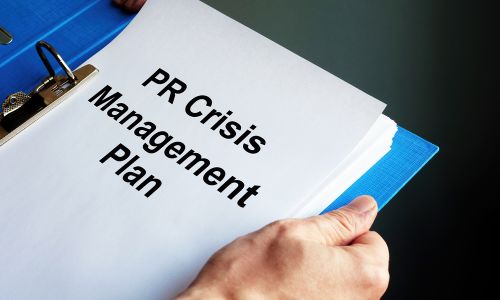In the world of business, storms can brew unexpectedly. Whether it’s a product recall, a PR disaster, or a global crisis like the one we faced in recent years, how a company responds to adversity can make or break its reputation. Crisis communication is not just about damage control; it’s about preserving trust, credibility, and goodwill among stakeholders. At JLM Communications, we understand the critical importance of effective crisis management, especially for small and medium businesses (SMBs) that may lack the resources of larger corporations. In this article, we explore essential strategies for navigating crisis communication and safeguarding your company’s reputation in turbulent times.
1. Proactive Preparation: The first step in crisis communication is preparation. SMBs should anticipate potential crises and develop comprehensive response plans. Identify key spokespeople and establish clear lines of communication both internally and externally. Conduct regular crisis drills to ensure your team is ready to spring into action when needed.
2. Transparency and Honesty: In times of crisis, honesty is non-negotiable. Transparency builds trust, whereas dishonesty or evasion can irreparably damage your reputation. Be forthcoming about the situation, acknowledge any mistakes, and communicate your plans for resolution. Remember, silence breeds suspicion, so keep stakeholders informed every step of the way.
3. Swift and Decisive Action: Time is of the essence in crisis communication. Delayed responses can exacerbate the situation and fuel speculation. Act swiftly to address the issue, even if all the facts are not yet available. Express empathy, take responsibility, and demonstrate your commitment to finding a solution. By showing that you’re proactive and in control, you can help mitigate the impact of the crisis.
4. Tailored Messaging: Every crisis is unique, and a one-size-fits-all approach to communication won’t suffice. Tailor your messaging to the specific circumstances and the needs of your audience. Consider the tone, medium, and timing of your communications to ensure they resonate with stakeholders. Personalize your outreach wherever possible to convey sincerity and authenticity.
5. Monitor and Respond: In today’s digital age, news travels fast, and misinformation spreads even faster. Stay vigilant by monitoring social media, news outlets, and online forums for mentions of your brand. Respond promptly to inquiries and address any misinformation or negative sentiment. By actively engaging with your audience, you can help shape the narrative and protect your reputation.
6. Learn and Adapt: A crisis can provide valuable lessons for the future. Once the immediate threat has passed, take the time to reflect on what went well and what could be improved. Conduct a thorough post-mortem analysis to identify areas for refinement in your crisis communication strategy. Use this feedback to update your response plans and better prepare for future challenges.
7. Rebuilding Trust: Restoring trust and repairing reputational damage takes time and effort. Be patient and persistent in your efforts to rebuild relationships with stakeholders. Communicate openly about the steps you’re taking to address the underlying issues and prevent similar crises from occurring in the future. Demonstrate your commitment to accountability, integrity, and ethical business practices.
Effective crisis communication is essential for SMBs seeking to navigate turbulent times and safeguard their reputations. By proactively preparing, communicating transparently, taking swift action, tailoring messaging, monitoring and responding, learning and adapting, and rebuilding trust, businesses can weather the storm and emerge stronger on the other side. At JLM Communications, we stand ready to assist SMBs in developing robust crisis communication strategies that protect their brands and preserve their reputations in the face of adversity.

